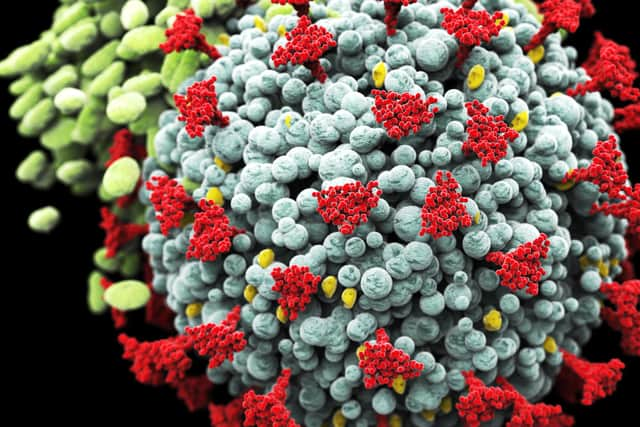Nigerian Covid variant: how many cases of the new strain are in the UK - and why are its mutations of concern?
and live on Freeview channel 276
Mutations found in a new Covid variant identified in the UK are potentially concerning, say scientists.
The new variant of coronavirus, known as B1525, has been seen in other countries including Australia, Denmark, Nigeria, Canada and the US.
Advertisement
Hide AdAdvertisement
Hide AdIts mutation from the original strain of the deadly virus has been traced back to December, when cases were reported in the UK and Nigeria.


Experts say B1525, referred to as the Nigerian variant, should now be the subject of surge testing to limit the spread of the deadly virus.
How many cases are there of the Nigerian variant?
There have been 38 cases of the Nigerian variant identified in the UK as of Tuesday 16 February.
B1525 has been classed as a variant under investigation (VUI), along with a strain of the virus which was present in Liverpool.
Advertisement
Hide AdAdvertisement
Hide AdPublic Health England (PHE) have classed the South African, Kent, Bristol and Brazilian strains of the virus as variants of concern (VOC).
Why is the Nigerian variant of concern to scientists?
The Nigerian variant contains the same genetic change - E484K - also found in the Brazilian and South African variants.
Laboratory studies have shown that viruses with the E484K mutation can escape human defences, making them more efficient at evading natural and vaccine-triggered immunity.
PHE medical director, professor Yvonne Doyle, said: “PHE is monitoring data about emerging variants very closely and where necessary public health interventions are being undertaken, such as extra testing and enhanced contact tracing.
Advertisement
Hide AdAdvertisement
Hide Ad“There is currently no evidence that this set of mutations causes more severe illness or increased transmissibility.
“The best way to stop the spread of the virus is to follow the public health advice – wash your hands, wear a face covering and keep your distance from others.
“While in lockdown, it is important that people stay at home where possible.”
What makes it similar to the Kent variant?
Experts say the variant has alterations in its genetic material that make it similar to the Kent variant, which is the dominant virus in the UK.